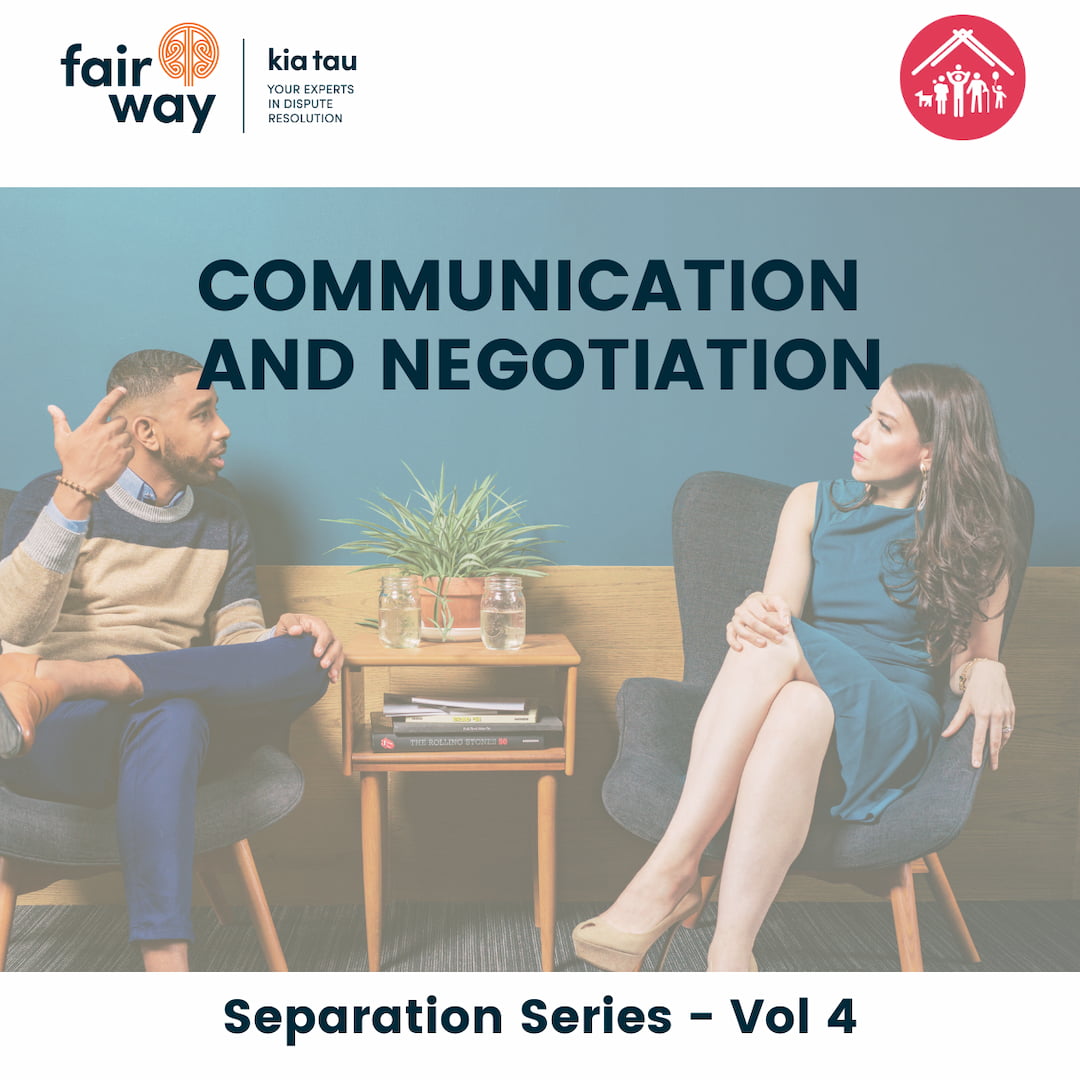Communication and negotiation – tips and strategies for success
This is the fourth instalment in Fair Way’s Separation Series, focusing on the experiences and challenges families face during separation. This piece was written by Samantha de Coning.
In order to resolve conflict, we need to be able to talk about the problem, but when we are involved in conflict, this is usually hard to do. Attempts at communication can seem to cause the conflict to escalate and so our natural inclination is to avoid these discussions. But unresolved conflict does not go away, but rather goes underground. This unseen, lingering presence has a cumulative effect with the result being that the next attempts at negotiation are even more difficult. Often, it is this pattern which leads to feelings of frustration and a belief that attempts to negotiate with the other parent will be a waste of time.
You need to be able to talk about your children’s needs and how you will co-parent together. Ongoing communication is essential. So, how do you do this when each attempt seems to end up in an argument?
As a starting point, consider why you are needing to communicate rather than what you want to say. Parents want to make sure that their children are ok, they want their children to have happy, healthy and safe childhoods, and they want their children to be loved and to be loved by them in return. Acknowledge that while there may be unresolved relationship issues, the focus of communication now is your child and the plans that you and the other parent need to make for them going forward.
Trust is often a casualty of conflict and it is difficult to have open hearted conversations when there is an assumption that the other parent is not acting in good faith. While you may not be able to influence the thinking of the other parent, you can choose to approach the conversation from a different perspective. Showing up to discussions ready to focus on your child and being open to hearing the views of the other parent can help shift these old patterns.
Rather than arguing for what you want, try communicating with the other parent about why this is important to you. When parents need to make a decision for their child and can’t agree it is usually because each parent has a solution in mind and fights for that position. When you share your concerns or reasoning, you can invite the other parent to do the same. In this way you can work together to find a way forward that you can both agree to, and which will support your children.
Shifting old communication styles and having collaborative and child focused conversations can be challenging. Family Dispute Resolution (FDR) mediation provides parents with the help they need. The FDR mediator will help keep discussions focused on the children’s needs and will facilitate the sharing of views in a safe and respectful way. Having the support of a neutral professional can make a big difference in reducing conflict and building communication skills for the future.
About this blog
When couples separate, there is a lot to think about and sort through. Fair Way supports families through separation each day, so we have decided to create an article series that shares information and advice on the common challenges faced by parents navigating this change.
If you need some support, reach out to Fair Way. Our team of expert Family Dispute Resolution mediators support whānau throughout Aotearoa to create parenting plans. We also provide Relationship Property mediation services when people need to work through how they will divide their shared property. Contact us on 0800 77 44 20 to see how we can help you.
